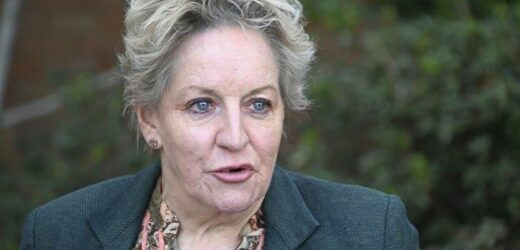West Australian minister Alannah MacTiernan is facing calls to step down from her agriculture portfolio over comments that a foot and mouth disease outbreak would lower meat and dairy prices in the state.
The country’s agricultural sector has been sounding the alarm over the potential for a foot and mouth disease outbreak in Australian livestock after the disease made its way to Indonesia in May.
Bali cows at Sada Sari Cow Farm, Kubu Anyar Village – Kuta – during foot and mouth outbreak in BaliCredit:Amilia Rosa.
Farming groups have warned an outbreak in Australia would be catastrophic to the industry and would mean empty supermarket shelves.
On Friday, MacTiernan tried to temper the commentary, telling The West Australian milk and meat would still be available in the vent of an outbreak and that some would argue it would be cheaper because of a domestic oversupply.
Farming groups and opposition MPs from both levels of government emphatically rejected MacTiernan’s comments.
Federal Liberal for O’Connor Rick Wilson said MacTiernan’s comments showed she was not across her brief and undermined the good work being done by her federal Labor counterparts.
“Really we need to educate West Australians travelling to Bali how serious this is and for the minister to make flippant comments that we might get some cheaper meat and milk is undermining it,” he said.
“I think she should give the portfolio to someone interested.”
WA Mining and Pastoral Region upper house MP Neil Thomson said MacTiernan’s comments were dangerous and ill-informed.
“Her comments trivialising FMD by saying it will drive down the price of domestic meat and milk is both naive and shows contempt for the hard-working biosecurity staff at the Australian Quarantine and Inspection Service, the Department of Primary Industries and Regional Development and those in our livestock industry,” he said.
“Not only does it send the wrong message to international travellers about this biohazard, but it also shows a frightening lack of understanding about the economics of the pastoral industry.”
MacTiernan brushed off calls for her to resign and rubbished the criticism levelled at her.
She said she made the comments to explain that a food and mouth outbreak wouldn’t close down the local industry.
“What we were responding to were claims that there wasn’t going to be any food on our shelves and we were concerned that would lead to panic buying,” she said.
“I’m hearing from farmers whose mental health, I believe, has been severely compromised by these concerns not being worked through with a clear head.
WA Agriculture Minister Alannah MacTiernan.Credit:Peter de Kruijff
“So we just got to keep really clear-eyed about how we manage all of these different levels of risk.
“I just want people to understand this; this is a serious threat, but it is one that we can manage.”
MacTiernan said the state government was doing everything it could to stop an outbreak.
“We are absolutely throwing everything we can at a try and to prevent the disease coming into Australia, and then having a plan to deal with it to minimise the impact if it does arrive,” she said.
“Around 50 people are currently working on this, we will be able to increase that into the hundreds should an incident occur.”
Foot and mouth disease affects mostly cloven hooves animals such as pigs, cows, sheep, goats and camels and can cause lameness.
The disease resulted in the destruction of 6 million cattle during the UK outbreak in 2001.
If an outbreak occurred in Australia, all livestock movements would be shut down for at least three days and the tarnishing of the country’s food and mouth disease-free status could hurt the country’s livestock export sector for several years after.
WA Farmers Federation chief executive Trevor Whittington told Radio 6PR said if the disease made it into Australia meat and dairy prices would go up in both the short and long term.
“The brutal reality is we get FMD outbreak in the southwest of the state, there’ll be no milk, no meat on the shelves within hours because the mad rush will be 10 times worse than on toilet paper during COVID,” he said.
“It’s quite easy for farmers to switch out of growing livestock and going into growing more grain and the long term implications on the foot and mouth outbreak is there’ll be less livestock produced in Australia, which means the domestic market will pay more.
“It’s pretty simple.”
Follow WAtoday on Instagram, LinkedIn, Facebook and Twitter for handpicked selections of the day’s biggest local, national and international news.
Most Viewed in National
From our partners
Source: Read Full Article




